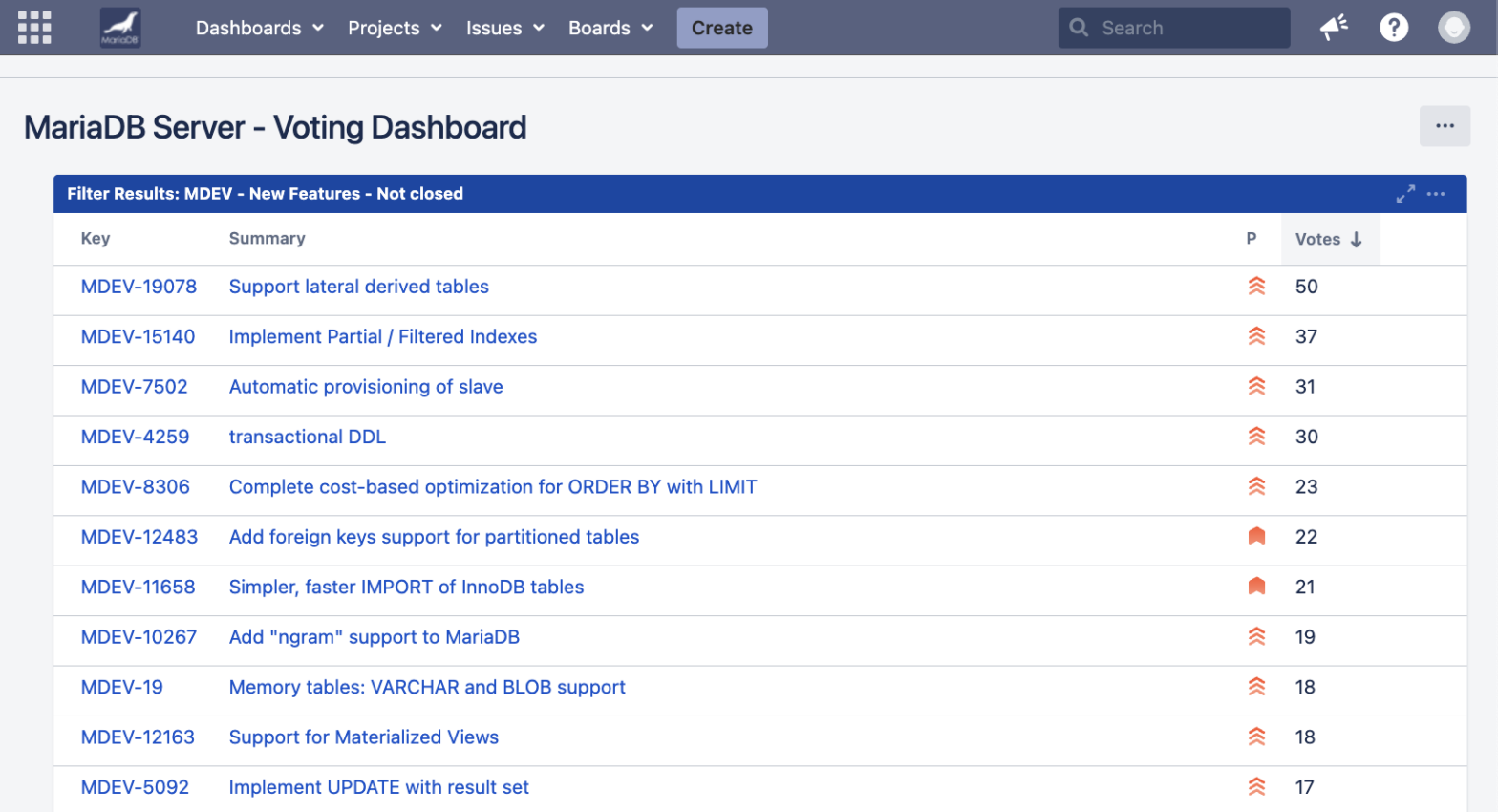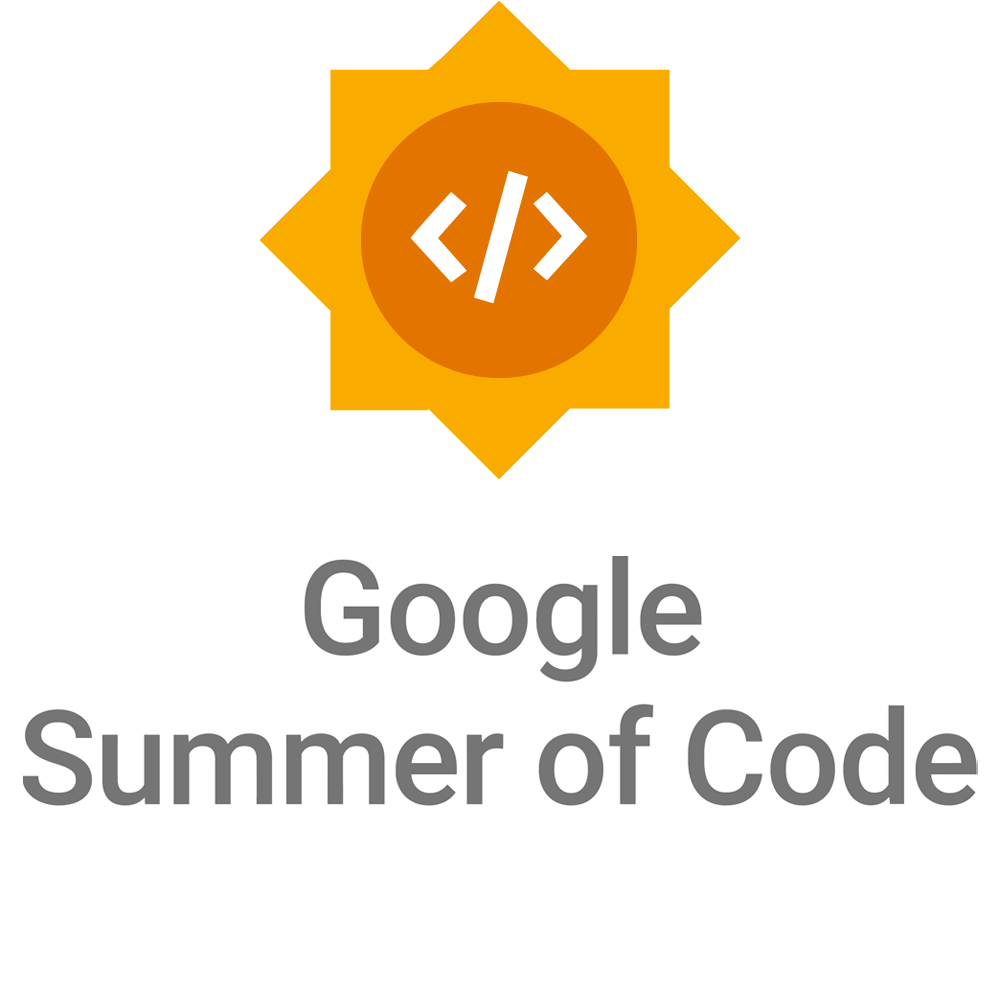Tag Archives: development
MariaDB has had a voting feature in its issue tracker Jira since the dawn of time, but it hasn’t got much active attention. Despite that, there are now many Jira community items that have collected a fair amount of votes over the years.
Many items are now in limbo—not on the MariaDB road map, but not rejected either. We would like to better understand how to act on these.
More votes, and preferably more detailed comments on syntax and desired functionality or insights on use cases, would help the MariaDB Foundation and Corporation a lot in deciding what to do and how to prioritize resources.
…
We recently had a public vote on whether “main” or a version branch should be the default. The results in favour of “main” were very clear. It has been just over a month, but behind the scenes we have been laying the groundwork for this to happen.
We think we are as ready as we can be, so with the opening of development for 11.7, we have switched to “main” as the default branch for MariaDB Server. This means that all new feature development should now target the “main” branch when contributing to MariaDB Server.
…
Coding standards are often as hotly debated as vim vs emacs and other developer arguments. Viewers of the show Silicon Valley will all know the “tabs vs spaces” scene and how passionate people can be about it. Whilst I do personally have a preference (I’m not sharing it here), I feel it is much more important that people stick to one standard for a code base.
Standards Story
Several months ago a new community developer for MariaDB Server sent me a message asking where to find our coding standards document. After a bit of searching I realised we did not have one, and if we want to onboard new developers we definitely should have one.
…
The Google Summer of Code is a fantastic program that pairs new contributors up with mentors and pays them to work on open source projects.
MariaDB has been part of Google Summer of Code for 10 years and we are happy to announce that we are officially part of the program this year, too!
Traditionally, GSoC has only been open to university students, but now it is available to anyone! I’m a big fan of this, because talented people who do not have the opportunity to go to university can get involved. It also benefits those who are working towards a change into a career in software development.
…
MariaDB has been using a pluggable storage engine architecture for a long time and whilst this means great flexibility in choosing and managing the right storage engines for specific use cases, it also means they are easier to develop and therefore there’s an expectation that more engines will be created.
More storage engines means the MariaDB Server itself needs to be as flexible as possible to accommodate all sorts of functionalities that storage engines may need. One area where the MariaDB Server proved to be not that welcoming was in making available all the compression libraries needed by storage engines.
…
Continue reading “10.7 preview feature: Compression Provider Plugins”
FOSDEM 2021 was amazing. MariaDB had a developer room and Foundation members contributed talks to a number of other developer rooms. We were listening for ways in which MariaDB server could be improved during all these talks, regardless of which room our MariaDB Foundation staff were in.
MariaDB server developers present provided information related to recently fixed/improved items and things that are planned to be fixed.
Our interactions with the community of users present, many of which we know, gave us an opportunity to have a dialog about some of the parts of MariaDB that they would like improved.
…
Introduction
Hi, my name is Kartik Soneji, and I am a second year student at Thadomal Shahani Engineering College, Mumbai. I have been programming since the age of 13. I started out with Java, then learnt a little C++ before diving head first into web development with HTML, CSS and JavaScript. I also programmed a bit in Python and Rust to see what all the hype was about.
My primary motivation to contribute to the open source community is because I strongly believe in the idea that software is free, to copy, modify and study.
…
Continue reading “A GSoC internship with the MariaDB Foundation”
Here is a quick tip for any developer who might want to test if the latest development version of MariaDB installs/upgrades. Traditionally, developers seem to have a bunch of virtual machines lying around which they use to test MariaDB installation and upgrade related things. Snapshotting virtual images, keeping them up-to-date, starting, stopping etc. takes a lot of time and does not feel very convenient.
A much faster option would be to use pristine Docker images for every test. Docker images however normally only run one process and thus do not simulate a complete operating system and lack vital things like systemd interactions. …
Continue reading “Developer tip: test MariaDB install/upgrade quickly with Docker”



